Time to walk the talk on road safety measures
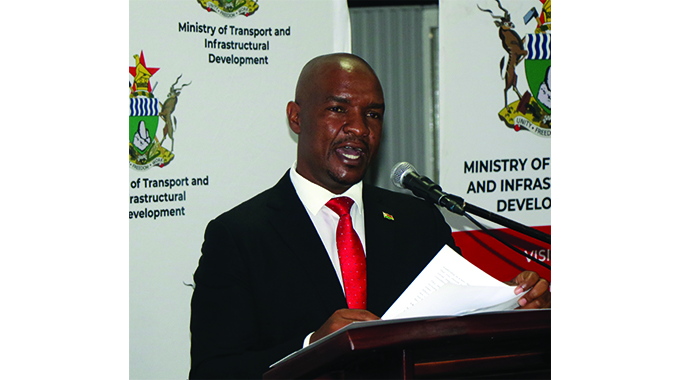
Gibson Mhaka, Senior Features Reporter
THE heart-rending story of six learners from Tynwald High School in Harare who died when their bus overturned in Nyanga recently calls on the Government to implement measures to reduce deaths and injuries on local roads.
According to reports, the horrific accident which happened at the 75km peg along the Rusape-Nyanga Road, leaving 35 other pupils and five staff members injured occurred when the driver who was speeding failed to negotiate a sharp curve.
The tragedy touched the hearts of many with the Cabinet proposing a number of measures as part of efforts to reduce road carnage of a similar nature.
“As Cabinet, we’re deeply saddened by this loss of life. In order to reduce road carnage, Cabinet resolved that there was need to reduce travelling at night, drivers need to familiarise themselves with the routes they will be using when ferrying children and traffic safety awareness programmes in schools should be ramped up,” said Information, Publicity and Broadcasting Services Minister Monica Mutsvangwa.

Publicity and Broadcasting Services Minister Monica Mutsvangwa.
Addressing the National Assembly, Vice President Constantino Chiwenga who is also Minister of Health and Child Care expressed sadness over the death of the six learners saying Transport and Infrastructural Development Minister Felix Mhona had been directed to address the issue of accidents that are claiming lives on the roads.
“It was wrong that the accident occurred at night. Children should never travel at night and the relevant Ministry, (Primary and Secondary Education) is looking into the matter.
“The Ministry of Transport will also be holding seminars to address the situation about the drivers on the roads and what needs to be done and once the Minister has done what he has been ordered to, he will come up with the Ministerial Statement and advise Parliament,” VP Chiwenga said.
Traffic Safety Council of Zimbabwe (TSCZ), the principal agent in promoting traffic safety in the country is also engaging learning institutions with a view of setting up school-based traffic safety clubs and training centres to integrate road safety into the curriculum and protect lives by preventing accidents.

Vice-President Constantino Chiwenga
Speaking at the National Association of Primary School Heads (Naph) annual conference in Victoria Falls late last month, TSCZ managing director Mr Munesu Munodawafa said TSCZ in liaison with the Ministry of Primary and Secondary Education were stepping up awareness programmes in schools in conjunction with school heads and other relevant authorities.
“Schools have a role to integrate road traffic safety into the curriculum by just teaching children jingles or issues that integrate road rules and safety awareness. We have been working and we will continue to work with schools and I invite additional ones that are ready so we come through and set up traffic safety clubs,” said Mr Munodawafa.
Motoring industry experts have also called on the Government to enforce Statutory Instrument 129 of 2015 that compels passenger service vehicles, lorries, buses and haulage trucks to be fitted with speed limiting devices to reduce accidents.
Statutory Instrument 129 of 2015 (64) (2) states that: “No person shall drive on any road passenger public service vehicle or a heavy vehicle with a net mass of 4 600kg or more, unless one of the following speed monitoring or speed limiting devices is fitted to the vehicle (a) a tachograph (b) a tacho-log (c) vehicle data recorder (d) fleet manager (e) co-driver (f) any other speed monitoring or speed limiting device which the Minister, after consultation with the Standard Associations of Zimbabwe may publish in the Gazette”.
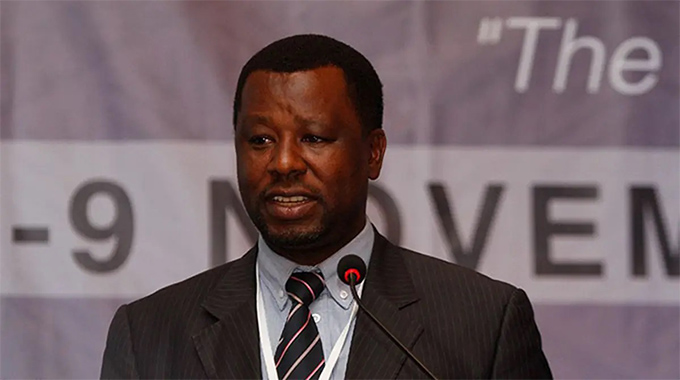
Mr Munesu Munodawafa said TSCZ in liaison with the Ministry of Primary and Secondary Education were stepping up awareness programmes in schools in conjunction with school heads and other relevant authorities.
These clarion calls come after a spike in fatal road traffic accidents in recent times with the latest being that of Tynwald High School which made it one of the country’s most devastating road crashes. Once more it raises questions whether enough is being done to make driving safe.
Of late, there had been numerous recommendations and measures which were proposed to prevent road crashes but were not being implemented.
It seems road safety has not received the attention it deserves.
For example, in 2015 the Government advocated for stiffer penalties including long custodial sentences for errant road users saying the ministry was in the process of reviewing the Road Traffic Act.
In 2017, the Government also proposed to ban cross-border and inter-city bus companies from operating between 9PM and 5AM and impose stiff penalties for overloading, speeding and defective vehicles as part of measures to curb road carnage.
The move, which was praised by many road safety advocates, as a welcome development considering that many people continue to lose their lives and some sustain varying degrees of injuries in road crashes has not yet been implemented.
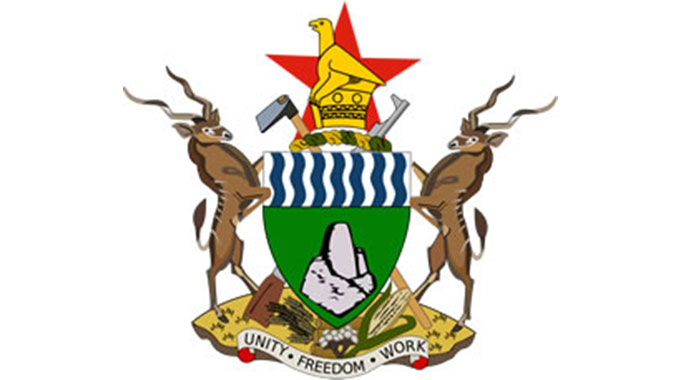
CIVIL-Protection-Unit
The Civil Protection Unit (CPU) also recommended the need for all public passenger transporters to maintain registers of all individuals on board before they depart to any destination.
As if that was not enough, in 2018 the Government also ordered police to enforce speed limit devices on all public transport vehicles to avoid road carnage through speeding.
Despite growing proposals by the Government and players in the transport sector, developments on the ground show that there is a need to move those policy measures from paper to practice.
It is important to note that while the Government has made commendable efforts to prevent road crash fatalities, more work needs to be done in enforcing the law and ensuring that offenders face steep penalties.
It is now time for the Government to act swiftly on proposed road safety measures as a way of reducing injury and death resulting from crashes.
Government must take concrete policy and regulatory measures if it is to prevent and address the impact of road carnage.
Statistics provided by TSCZ confirm that the road crash deaths rate rose by 34.45 percent between 2011 and 2019, from 1 291 deaths in 2011, rising to 2 000 in 2019.
According to the TSCZ, an average of 1 800 people are killed on Zimbabwe’s roads annually while 30 000 others are injured.
These figures mean that about five people die every day on the roads in Zimbabwe and this translates to 153 persons killed per month.
Estimates by the TSCZ research in 2018 showed that the country loses about US$406 million annually from an average 40 000 road traffic accidents every year, and this is estimated to be almost 3 percent of the gross domestic product of about US$14 billion.
This is despite the fact that there is a litany of laws in our statutes that can be used to prevent road crashes.
It is high time that the Government acts swiftly to put into law some of the proposed recommendations.
Mr Tendai Mujuru, an expert in speed limiting devices, called on the Government to extend the Statutory Instrument 129 of 2015 to private vehicles saying nations that have implemented speed limiting devices saw a reduction in road crashes, injuries and fatalities which is a major step towards zero death by 2050.
“This has been a long-overdue move. It is now time that the law that requires all public service vehicles to be fitted with the device be enforced. That can help save thousands of lives,” said Mr Mujuru.
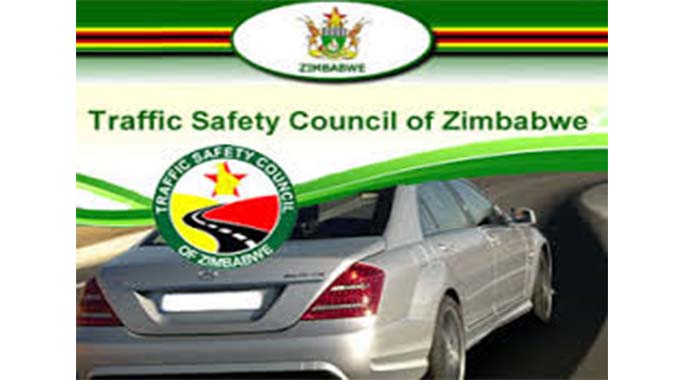
The Zimbabwe Traffic Safety Council of Zimbabwe (TSCZ)
He said once the law is enforced, it is projected accidents would be reduced by 60 percent.
A road safety advocate, Mr Edwin Ndlovu, who is also vice-president of the Zimbabwe Driving Schools Owners Association (ZDSOA) said despite the fact that the Government was committed to reducing the number of road accident deaths and injuries in the country, it was not implementing some of measures.
“The problem we have as a country is that we only react after the disaster has befallen the nation and the reaction stops immediately thereafter. Another challenge is that ‘real’ stakeholders are not part of the planning team.
“It’s time for us as a country to make sure that all proposed measures are implemented and put into practice and this requires a high degree of policy coherence and concrete action, which is rarely evident in practice.
“As ZDSOA, we would like to encourage drivers not to partake in night driving if there is nothing pressing. Actually, public service vehicles should be banned from driving at night,” said Mr Ndlovu.

National Development Strategy 1 (NDS1)
He also encouraged compulsory Defensive Driving Course for all road users.
“As driver trainers, we want to be part of the planning team with regards to taming the traffic jungle,” said Mr Ndlovu.
Speaking at the World Day of Remembrances’ for Road Traffic victims (WDR) in Bulawayo recently, Transport and Infrastructural Development Minister Felix Mhona said the Government was committed to reducing accidents on the roads.
“The carnage on our roads must stop. We can’t go on pretending day by day that someone, someday will come and make a change, road safety is our absolute responsibility. Surely, it can only be through us that we put an end to the silent killer on our roads.
“This is a war we can win as roughly 94 percent of road traffic accidents are directly attributed to human error. A change in human behaviour could therefore easily result in a lowering of the worrisome statistic. All of us want to end this carnage,” said Minister Mhona.
He said as Government, they have committed the country to action in line with the Second Decade of Action (2021-2030) with the road safety goal of reducing road traffic accidents by 50 percent by 2030. He said as a sign of commitment to this ideal and road safety, they also set the 50 percent reduction in road traffic accidents as one of the goals under the National Development Strategy1 (NDS1).


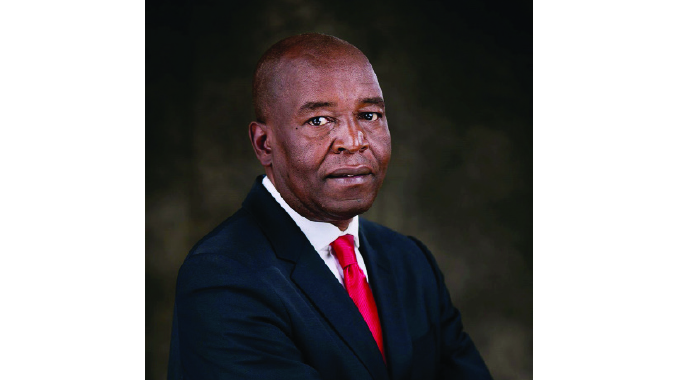









Comments